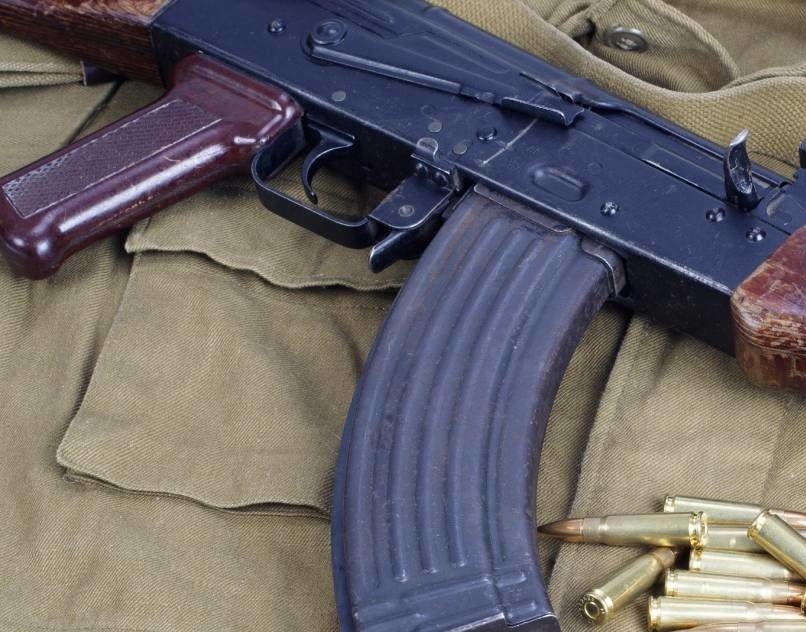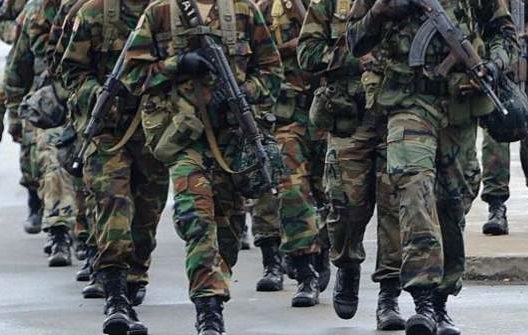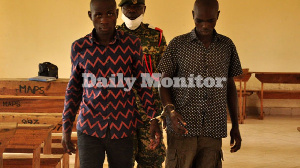‘Rape me, not my daughters’ – Sudan’s horrific war

After 17 months of a brutal civil war which has devastated the country, the army has launched a major offensive in the capital Khartoum, targeting areas in the hands of its bitter rival, the paramilitary Rapid Support Forces.
The RSF seized most of Khartoum at the start of the conflict, while the army controls the twin city of Omdurman, just across the River Nile.
But there are still places where people can, and do, cross between the two sides.
At one such point, I met a group of women who had walked four hours to a market in army-controlled territory at the edge of Omdurman, where food is cheaper.
The women had come from Dar es Salaam, an area held by the RSF.
Their husbands were no longer leaving the house, they told me, because RSF fighters beat them, took any money they earned, or detained them and demanded payment for their release.
“We endure this hardship because we want to feed our children. We’re hungry, we need food,” said one.
And the women, I asked, were they safer than the men? What about rape?
The chorus of voices died down.
Then one erupted.
“Where is the world? Why don’t you help us?” she said, her words coming out in torrents as tears ran down her cheeks.
“There are so many women here who’ve been violated, but they don’t talk about it. What difference would it make anyway?”
“Some girls, the RSF make them lie in the streets at night,” she went on. “If they come back late from this market, the RSF keeps them for five or six days.”
As she spoke her mother sat with her head in her hand, sobbing. Other women around her also started crying.
“You in your world, if your child went out, would you leave her?” she demanded. “Wouldn’t you go look for her? But tell us, what can we do? Nothing is in our hands, no one cares for us. Where is the world? Why don’t you help us!”
The crossing point was a window into a world of desperation and despair.
Travellers described being subjected to lawlessness, looting and brutality in a conflict that the UN says has forced more than 10.5 million people to flee their homes.
But it is sexual violence that has become a defining characteristic of the protracted conflict, which started as a power struggle between the army and the RSF but has since drawn in local armed groups and fighters from neighbouring countries.
The UN’s High Commissioner for Human Rights, Volker Turk, has said rape is being used as “a weapon of war”.
A recent UN fact-finding mission documented several cases of rape and rape threats from members of the army, but found that large-scale sexual violence was committed by the RSF and its allied militias, and amounted to violations of international law.
One woman the BBC spoke to blamed the RSF for raping her.
We met her in the market at the crossing, aptly named Souk al-Har – the Heat Market.
Since the war began the market has expanded across the barren land on a desert road out of Omdurman, attracting the poorest of the poor with its low prices.
Miriam, not her real name, had fled her home in Dar es Salaam to take refuge with her brother.
She now works in a tea stall. But early in the war, she said, two armed men entered her house and tried to rape her daughters – one 17 years old and the other 10.
“I told the girls to stay behind me and I said to the RSF: ‘If you want to rape anyone it has to be me,’” she said.
“They hit me and ordered me to take off my clothes. Before I took them off, I told my girls to leave. They took the other children and jumped over the fence. Then one of the men laid on me.”
The RSF has told international investigators that it has taken all the necessary measures to prevent sexual violence and other forms of violence that constitute human rights violations.
But the accounts of sexual assault are numerous and consistent, and the damage has a lasting impact.
Sitting on a low stool in the shade of a row of trees, Fatima, not her real name, told me she had come to Omdurman to deliver twins, and planned to stay.
One of her neighbours, she said, a 15-year-old girl, had also become pregnant, after she and her 17-year-old sister were raped by four RSF soldiers.
People were awakened by screams and came out to see what was going on, she said, but the armed men told them they would be shot if they did not go back into their houses.
The next morning, they found the two girls with signs of abuse on their bodies, and their elder brother locked in one of the rooms.
“During the war, since the RSF arrived, immediately we started hearing of rapes, until we saw it right in front of us in our neighbours,” Fatima said. “Initially we had doubts [about the reports] but we know that it’s the RSF who raped the girls.”
The other women are gathering to begin the trek back home to areas controlled by the RSF – they are too poor, they say, to start a new life like Miriam has done by leaving Dar es Salaam.
For as long as this war goes on, they have no choice but to return to its horrors.
By: Barbara Plett Usher, BBC Africa correspondent, Omdurman
Source: bbc.com





